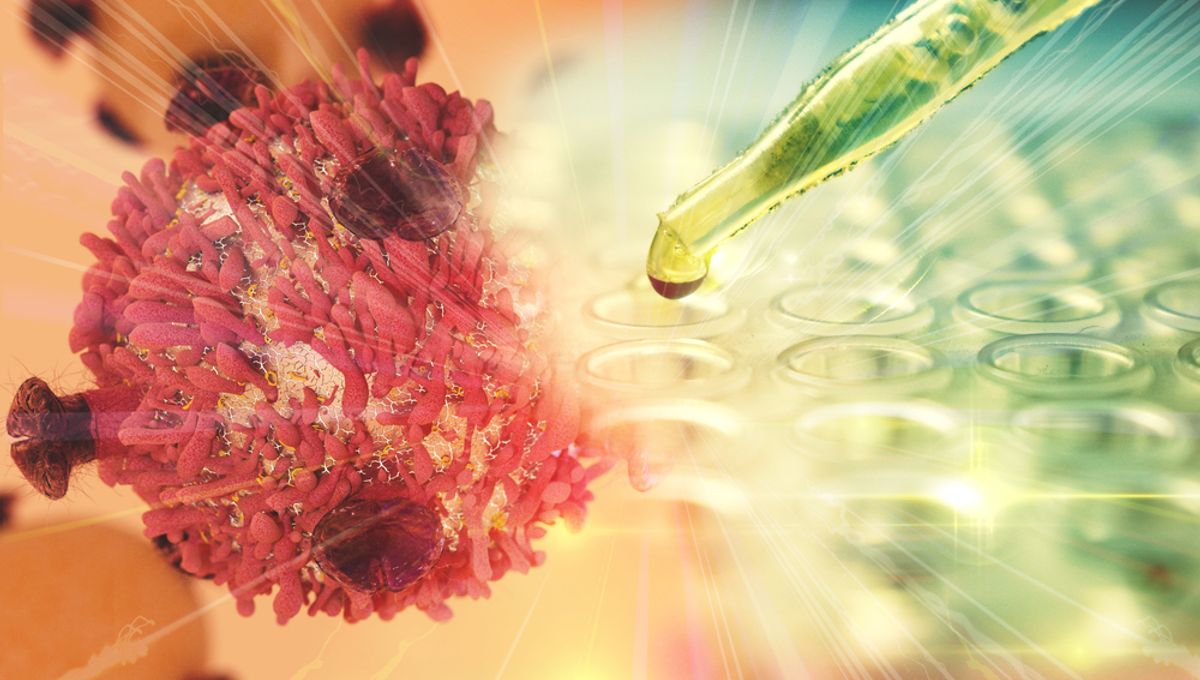
ATX-101 is an experimental drug designed to kill cells of all types of cancers, while leaving healthy cells untouched. A trial of cancer patients for whom all existing treatments had failed was intended just to test ATX-101’s safety. For many of those participating it appears to have extended their lives, halting the progression of their disease for months or years.
If someone claims to have a “cure for cancer” you can usually safely assume it’s a scam. Cancer isn’t one disease. The wide variety of types have distinct causes, varying symptoms, and affect different parts of the body. We’ve made spectacular progress against some of these, very little against others. It doesn’t make much sense to think a single treatment will cure everything.
ATX-101 isn’t likely to represent a universal cancer cure, but the results of its Phase I trial, reported in a new study, suggest the dream might not be as ridiculous as previously thought. By targeting a feature common to cancer cells in different organs the drug may reveal a crucial point of vulnerability for all forms of the disease. If so, future drugs could attack this weak spot with ever greater precision.
“Cancer cells are more stressed than other cells. However, they don’t die but continue to grow even when they are damaged,” said Professor Marit Otterlei, of the Norwegian University of Science and Technology, in a statement. “Conventional cancer treatment with chemotherapy puts more stress on the cancer cells so that the cells eventually do die.”
Unfortunately, chemotherapy also damages healthy cells, so there is only so much that can be given before the cure becomes worse than the disease. An increasing array of drugs target cancer cells in other ways, but only work on a single sort of cancer, or at best a few types.
Otterlei’s solution was to look for molecules that only affect cells that show cancer’s specific form of stress, and have no effect on others. ATX-101 is the first she has found that performs well enough in vitro and in animal studies to be tried in humans.
“ATX-101 can be used as the only treatment. It can stabilize the cancer as shown in the recently published studies, but the medicine can also help chemotherapy work even better so that you don’t have to have so much of it,” Otterlei said.
For the trial, 25 patients with a variety of cancers were given ATX-101 intravenously in one of four doses. Even at the highest dosage none of the patients found the treatment intolerable, and most reported only mild side-effects, such as itching around the site of the infusion.
Half the patients had received at least four different treatments prior to enrolment in the trial, and in almost all cases all had not worked or had stopped working. Twelve responded well enough over six weeks that they extended their participation. Eight of these experienced a substantial pause in the progression of the disease; for one, the cancer was no larger 29 months later. The sample size was far too small to determine if some forms of cancer are more susceptible than others.
Otterlei’s breakthrough was to discover a binding sequence, which she named APIM, that regulates stress in cells, binding to the PCNA coordinator molecule when pressures are high. It’s taken her 18 years from finding APIM to the two Phase 2 trials currently being conducted against sarcomas and ovarian cancer, respectively.
To do that Otterlei and colleagues needed to make an APIM-containing drug that binds to PCNA and prevents it from interacting with proteins, disrupting the cancerous cells to their destruction while apparently leaving healthy cells alone. ATX-101 can also re-sensitize cancer cells that have developed resistance to standard chemotherapies, restoring the effectiveness of treatments that were no longer working.
In the process of her cancer research Otterlei accidentally discovered a potential new class of antibiotics.
The study is published in Oncogene (open access).
Source Link: One Drug Stopped Progression Of Many Types Of Cancer In Small Trial